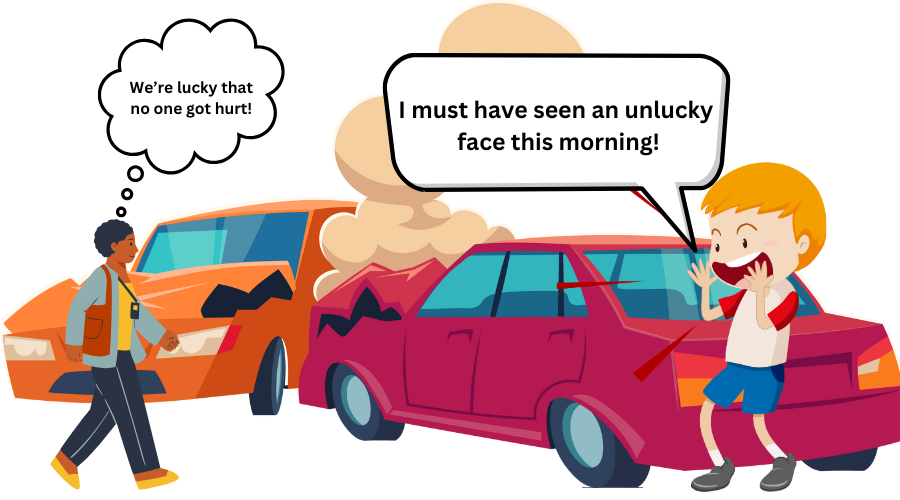Many people feel stuck in life without realizing that certain mindsets hold them back. I will tell you about the five mistakes that prevent a person from moving forward in life.
You might not be making all of them, but there is one common mistake that many people unknowingly commit.
1. Self-Pity– A Roadblock to Success
You wake up in the morning, work all day, study at night—this cycle repeats endlessly. But when exhaustion takes over, a question arises:
❓“Is there anyone who will guide me?”
Many people around us constantly feel that the world is unfair to them. They magnify their struggles so much that they fail to see a way forward.
Signs You Are Trapped in Self-Pity
Now, take a moment and ask yourself honestly—
- Do you feel like you are simply unlucky?
- Do you think your struggles are far greater than others?
- Do you believe that no one truly understands your hardships?
If your answer to these questions is yes, then you might be indulging in unnecessary self-pity—and this very mindset could be holding you back from success.
🔹 How Self-Pity Holds You Back
- Do you feel like no one truly understands you?
- Do you often think that others have amazing, colorful, and successful lives, while you are left behind?
- Do you believe that no matter how hard you try, things always go wrong for you?
If your answer to these questions is “yes,” then beware! Excessive self-pity can ruin you.
Remember—your thoughts shape your behavior, and eventually, they become your reality. If you constantly see yourself as weak and unfortunate, your life will start reflecting that belief. Seeing yourself as a helpless victim is one of the biggest mistakes in life. It is a harmful mindset that must be eliminated as soon as possible.Some people get so consumed by self-pity that they start believing the world is simply using them. But never let yourself fall into that trap!
Change Your Perspective, Change Your Life
You may not always have control over your circumstances, but you can control your mindset. And sometimes, a shift in perspective is all you need to turn things around.
Perspective is Everything
Some people exaggerate their sad stories just to gain sympathy and hope that someone will come to their aid. But in doing so, they fail to realize that this habit is making them mentally weak and dependent.
Remember—complaining is nothing but a waste of time. It never changes your circumstances.
One Incident, Two Perspectives
A few days ago, I was in a shopping mall parking lot when I witnessed two cars reversing at the same time. Their bumpers collided, causing minor damage. However, their reactions were completely different.

The first driver jumped out of his car, shouting angrily—
“Great! As if my life didn’t have enough problems already, now this! I must have seen an unlucky face this morning!”
Meanwhile, the second driver calmly stepped out, shook his head, and said—
“Thank God, nothing serious happened. We’re lucky that no one got hurt!”

Both experienced the same situation, yet their perspectives were completely different:
- The first driver was angry and frustrated.
- The second driver felt grateful and fortunate.
Life is a Matter of Perspective
What happens to you is not as important as how you choose to see it—that’s what truly shapes your life. This is the classic “glass half full or half empty“ scenario.
The world itself doesn’t define your experience. Your perspective does.
Successful People Don’t Complain
One simple truth—successful people never drown in self-pity. They don’t waste time complaining; instead, they see every challenge as an opportunity.
Nick Vujicic is the perfect example of this. Born without arms and legs, yet he inspires millions worldwide, proving that life is beautiful and should be lived to the fullest.
“No arms, my legs, my legs. No worries. No worries, mate. I see it as an opportunity..”
– Nick Vujicic
So, what will you choose—complaints or possibilities? Comment us below.
2. Do You Constantly Try to Make Everyone Happy?
If you often find yourself prioritizing others’ happiness at the expense of your own, you might be trapped in the cycle of people-pleasing. While kindness is a virtue, constantly seeking approval from others can be exhausting and damaging.

Signs That You Might Be a People-Pleaser
Now, let me ask you a few questions:
- Do you feel upset when you think about others?
- Do you like to make people happy instead of putting your point strongly?
- You are saying sorry when it is not your fault, but how many times does it happen that you feel bad?
- Do you say “yes” to helping others without expressing your true feelings, even if you don’t want to?
- If you host a party and people don’t seem to enjoy it, do you immediately feel responsible for their lack of enjoyment?
- When someone around you is upset, do you believe it is your duty to make them happy?
My friends, if the answer to one of these things is yes, then your life is passing by doing a possible work, and that work is to make everyone happy. Oh my brother, even God could not do this, then who are you?
Why People-Pleasing Can Harm You
Sometimes, trying too hard to be a “good person” can backfire. Remember, whenever your behavior gets involved in making people happy, you have to suffer serious losses in all areas of your life. Also note that everyone cannot be made happy, it is impossible and God has not sent you down to make people happy.
How to Stop Being a People-Pleaser
When you stop worrying about making everyone happy, you will see many profits and your confidence will touch the sky. You will have more time for your rules. You will be less stressed, so take the responsibility of making people happy off your delicate shoulders, and listen to me, focus on your life.
1. Recognize Your Worth
Understand that your value is not defined by how much you do for others. Prioritize self-care and self-respect.
2. Set Boundaries and Learn to Say No
Saying “no” doesn’t make you selfish. It allows you to focus on what truly matters to you.
3. Express Your True Feelings
Don’t hold back your opinions just to keep the peace. Speak up and be confident in your beliefs.
4. Let Go of Guilt
You are not responsible for everyone’s happiness. Letting go of this burden will free you from unnecessary stress.
5. Surround Yourself with Supportive People
Build relationships with those who respect your boundaries and value you for who you are.
Keep yourself happy my friend, this is your biggest responsibility. If every person just keeps himself happy, then everyone will start smiling.
3. Fear of Taking Risks: Why Logic, Not Emotion
Listen, my friend—life is all about experimentation. The more you experiment, the better you become. But instead of focusing on what could be possible, most people focus on what could go wrong—and end up doing nothing at all.
There’s a saying:
“Analysis leads to paralysis.” Overthinking risks often prevent people from taking action.
In reality, most people don’t even take time to analyze which risks are worth taking and which ones should be avoided. Instead, they make decisions based on emotions, fears, or old habits rather than logic.
Why We Make Emotional, Not Logical, Decisions
Think about this:
- If a possible outcome looks scary, people avoid it.
- If an outcome looks profitable, they ignore the risks involved.
This happens because we let emotions overpower logic when making decisions. But emotions fluctuate, while logic remains stable.
How to Make Logical Decisions Instead of Emotional Ones
Here’s a simple decision-making rule I use in my life:
✅ Whenever emotions are high, always make decisions based on logic, not feelings.
❌ Never take major life decisions purely based on emotions—because emotions are temporary.
Real-Life Example: Car vs. Plane Accidents
Many people are afraid of flying, but they drive cars without fear. However, statistics show:
- The probability of dying in a car accident is 1 in 5,000.
- The probability of dying in a plane crash is 1 in 10 million.
Yet, people choose cars over planes simply due to fear—not logic. The same happens in life: Many people avoid opportunities because they fear failure, not because the risks are actually high.
Superstitions & Decision-Making
Another strange fact:
- Every month, on the 13th, fewer people book flights.
- Many hotels don’t have a 13th floor—all because of superstition, not logic.
Superstitions, emotions, and fear-based thinking hold people back from making smart choices. But here’s the truth:
Why Taking Risks is Necessary for Success
But taking risk is very important for a person to move forward in life. But remember, whenever you see the possibility of a big benefit, then often the possibility of getting cheated also increases.
Example from Mythology: The Golden Deer
- Sita Ji saw a golden deer—a symbol of great fortune.
- But it turned out to be a trap.
- She chased a big reward without calculating the risk—and suffered the consequences.
This is why blindly chasing big rewards without understanding the risks can be dangerous. Instead, take calculated risks, not emotional ones, and you’ll find success.
Final Thought: Take Risks, But Be Smart About It
Life rewards action-takers, not overthinkers. But smart decision-making is about balancing risks with logic.
👉 What’s one risk you’ve been avoiding? Share your thoughts in the comments!
👉 Want to master decision-making? Read our guide on logical thinking!
By making small, logical choices every day, you’ll overcome fear and take control of your future.
4. The Most Costly Mistake: Living in the Past
Have you ever wished you could press the rewind button and change certain parts of your life? Do you often think that if you had chosen a different path, things might have been better? Many people feel that their best days exist only in memories, like an old movie that keeps playing in their minds. Do you feel ashamed of your past?
Why Do People Dwell on the Past?

Self-reflection is good, but over-focusing on the past can be disastrous. It not only prevents you from enjoying the results of the present but also keeps you from planning for the future. Living in the past and staying stuck in it disconnects you from the present.
Contrary to popular belief, it’s not always due to regret or trauma. Here are the two main reasons:
- Painful Events – Some individuals dwell on past mistakes, heartbreaks, or failures, unable to move forward.
- Escaping the Present – Others retreat into old memories as a way to avoid facing current challenges. When life feels overwhelming, reminiscing about the “good old days” can feel like a safe escape.
The important thing to understand is that people do not dwell on the past only because of painful events; sometimes, they do so to escape the present. Often, we immerse ourselves in past memories just to avoid facing current problems.
The Hidden Dangers of Living in the Past
Living in the past does not solve problems; instead, it entangles both your present and future. It is also one of the biggest causes of depression.
Let me share a shocking fact—
a study conducted by university researchers in 2013 found that constantly living in the past and dwelling on old memories can lead to various diseases, even serious illnesses like cancer.
Studies have shown that excessive rumination can lead to the following:
- Increased Risk of Depression & Anxiety: Research published in the Journal of Abnormal Psychology (2013) found that people who dwell on past mistakes are more likely to suffer from anxiety and depression.
- Physical Health Issues: A study by the University of California found a link between chronic stress caused by rumination and an increased risk of heart disease, weakened immunity, and even cancer.
- Loss of Productivity: When the mind is constantly replaying past regrets, it becomes difficult to focus on present tasks or plan for the future.
That is why wise people do not live in the past.
How to Stop Living in the Past
There is a simple way to break free from this—whenever your mind gets stuck in old memories, replace them with something positive. Focus on good experiences and start planning for your future. When you begin focusing on the future, your attention on the past will naturally diminish. Set both short-term and long-term goals immediately, and dedicate yourself wholeheartedly to achieving them.
In the end, let me just say this—what has passed cannot be changed or brought back. But the life ahead can still be made truly extraordinary!
5. Fifth Mistake – Fear of Change
My friend, it is very important to understand that “Change is the only constant.”

Once, a famous speaker was delivering a lecture somewhere. In the middle of his talk, he made a statement that sparked a controversy.
He said, “Our ancestors were once monkeys.”
As soon as he said this, chaos erupted in the hall. Some people got furious and said, “How dare you call our ancestors monkeys?” The argument escalated so much that someone even threw a slipper at the speaker in anger! Half of the audience walked out, saying, “We don’t want to listen to this person who is calling our ancestors monkeys!”
However, some people stayed and thought, “Well, the statement does have some truth to it!”
During this, one person asked the speaker,
“Sir, if our ancestors were monkeys, then why do monkeys still exist today?”
The speaker smiled and replied, “The monkeys who embraced change became humans, and those who refused to change remained monkeys!”
Fear of Change is the Biggest Obstacle
Friends, it is not that only some people have the power to change while others do not. The only difference is that some people are willing to change, and some are not.
Although it is very easy to say, “I want to change,” actually transforming oneself successfully is very difficult. This is because our thoughts and habits often prevent us from making changes, even if those changes are for the betterment of our lives.
There are many people who are afraid of changes that could actually improve their lives.
The Price of Not Changing
Remember this—if you are afraid of change, you will never be able to learn anything new.
Example: Whether you change or not, the world is changing rapidly.
✈️ Flying taxis will soon be seen in Bangalore, and AI has already brought revolutionary changes across the world.
In such a situation, thinking “If I don’t change, nothing will change,” would be a huge mistake. Keep in mind, if you keep doing everything the same way forever, it will be the biggest risk—because you will be left behind!
Delaying Change Only Makes It Harder
Without change, your life can never improve—I can put it in writing! And the longer you wait, the harder change will become.
What do you think—
✅ "Is it easier to quit smoking after your first cigarette or after smoking for 20 years?"The longer you hold on to habits, the harder it becomes to let go of them.
If You Want to Move Forward, You Must Change!
Friends, change is essential. If you want to progress in life, embrace change, learn new things, and overcome your fears to take steps toward success!
Final Thoughts:
Friends, these are five mistakes that many people make in their lives. I hope that you were not making any of these mistakes. But if you were, then stop making them from today itself!







